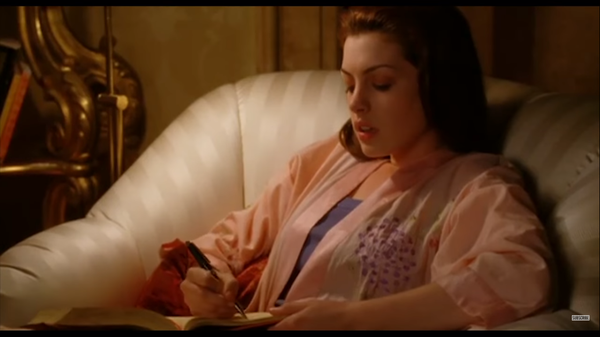I wish I had seen and reviewed the Kate Brashear-directed "No Exit" sooner, but then more people might have seen it. Smaller crowds are a staple of Bard’s Old Gym Theater, but the limited space has often been used to heighten atmosphere, making things more uncomfortable or more relaxing as is necessary. However, a small crowd not only builds tension in "No Exit", it is almost necessary to feel the unmitigated tension between the primary actors.
The story is familiar. Three apparently unconnected souls are condemned to hell, which visionary existential writer Jean-Paul Sartre envisions as a simple room. There, they are forced to reveal their darkest sins to complete strangers and bear each other’s company for all eternity. In an interesting theatrical decision, Brashear decided this play would be best performed in the round and erected a spacious, yet unsettling, seating arrangement around a set of three couches and a table. It was a potentially risky directing choice, but it worked better than expected. The set became an actor in and of itself, emphasizing each emotion and conveying it to the audience by giving off a sense of interaction with the performance.
Each patron was admitted individually by the Valet (Leon Gonzalez) who seated them seemingly at random. His demeanor was straight out of a 1930’s horror movie, with a suspicious limp and wild, awkward eyes. While waiting for the show to begin, the audience was treated to a stage and house lit by hellish red light and a soundtrack of screams, disturbing crowds, and other ominous noises, letting them know that this was truly not for the faint of heart. It all served as the audience’s first glimpse of the intentionally disconcerting performance they had trapped themselves in.
There was literally no exit.
The performance itself was very good. Gonzalez was brief on the stage but left a lasting impression with his nervous ticks and mannerisms. Alex Glass was fast and troubled as the aloof Garcin. He clearly had a firm grasp of the character and his motivations, and fully encompassed Garcin’s desire for redemption in the face of temptation. Brynn Gilchrist played the haunting and cold Inez. She delivered just enough insanity and stubbornness to make her arguably the most memorable of the actors, but not so much that she overplayed her part. Catherine Bloom rounded out the trio as the materialistic and attention-driven Estelle, a role that she slipped into like a glove. It was a particularly layered performance as Bloom seemed to know how someone like Estelle would attempt to armor her weaknesses and what happens when they are exposed. All in all, they had crafted themselves well into their respective parts and played them to near perfection. Sartre’s words sounded completely comfortable coming out of their mouths, and they were blocked better than most plays in the round that I have seen.
Overall, however, it was Brashear’s vision that clearly pulled everything together. She had an intimate understanding of Sartre (her director’s note in the playbill showed as much) and knew the space she was working with would not be suitable for a traditional performance of his work. Teamed with proficient actors and a critically acclaimed script, she created an enveloping and frightening landscape. Sartre can rest easy knowing that his work is in at least a few good hands. Unfortunately, the show only ran three nights, and it is now impossible to see it. But I look forward to seeing more from these actors and this director, and so should you.




















